Running can be a liberating experience, but finding the right footwear becomes a critical part of the journey, especially for men who weigh over 200 lbs. The shoes you choose can impact your performance, comfort, and overall health. This guide is tailored specifically for larger runners, focusing on the best running shoes that provide support, durability, and cushioning.
Why Choosing the Right Running Shoes Matters for Heavier Runners
For men who weigh over 200 lbs, the demands placed on footwear are heightened. The right shoes can prevent injuries such as shin splints, plantar fasciitis, or knee pain. Understanding how shoes are constructed and what features they offer can make a significant difference in your running experience.
Features to Look for in Running Shoes for Men Over 200 lbs
- Cushioning: Look for shoes with generous cushioning to absorb impact.
- Stability: Stability shoes can help control overpronation, common among heavier runners.
- Durability: The shoe’s materials should withstand the wear and tear of heavier runners.
- Fit: A proper fit prevents blisters and discomfort during runs.
Top 6 Best Running Shoes for Men Over 200 lbs
1. ASICS Gel-Kayano 28
ASICS has long been a favorite among serious runners, and the Gel-Kayano 28 is no exception. Known for its exceptional stability and support, it’s designed to cater to heavier runners.
| Feature | Details |
|---|---|
| Cushioning | Gel technology for shock absorption |
| Weight | 11.1 oz (men’s size 9) |
| Drop | 10 mm |
| Stability | Dynamic DuoMax Support System |
Pros and Cons
- Pros: Excellent cushioning, great for long distances, durable materials.
- Cons: Pricey, may feel too firm for some runners.
2. Brooks Adrenaline GTS 21
The Brooks Adrenaline GTS 21 is a well-rounded shoe that combines cushioning with support, making it perfect for heavier men. It’s designed for those who need stability.
| Feature | Details |
|---|---|
| Cushioning | DNA LOFT and BioMoGo DNA cushioning |
| Weight | 12 oz (men’s size 9) |
| Drop | 12 mm |
| Stability | GuideRails holistic support system |
Pros and Cons
- Pros: Comfortable for long runs, great shock absorption, solid support.
- Cons: A bit heavier than competitors, some may find it too wide.
3. New Balance Fresh Foam 1080v11
The Fresh Foam 1080v11 from New Balance offers a plush ride combined with a lightweight feel. This makes it an excellent option for heavier runners looking for comfort and ease.
| Feature | Details |
|---|---|
| Cushioning | Fresh Foam midsole technology |
| Weight | 10.3 oz (men’s size 9) |
| Drop | 8 mm |
| Stability | Neutral shoe with good support |
Pros and Cons
- Pros: Lightweight, plush cushion feels soft on the foot, stylish design.
- Cons: Less stability for overpronators, can wear out quicker than sturdier models.
4. Hoka One One Bondi 7
Known for its maximum cushioning, the Hoka One One Bondi 7 is a fantastic choice for larger runners who appreciate heavy padding. This shoe offers a generous amount of soft cushioning.
| Feature | Details |
|---|---|
| Cushioning | EVA foam midsole |
| Weight | 11.5 oz (men’s size 9) |
| Drop | 4 mm |
| Stability | Minimal stability features |
Pros and Cons
- Pros: Exceptional cushioning, great for recovery runs, and easy on joints.
- Cons: Bulky design may not appeal to everyone, less responsive than firmer shoes.
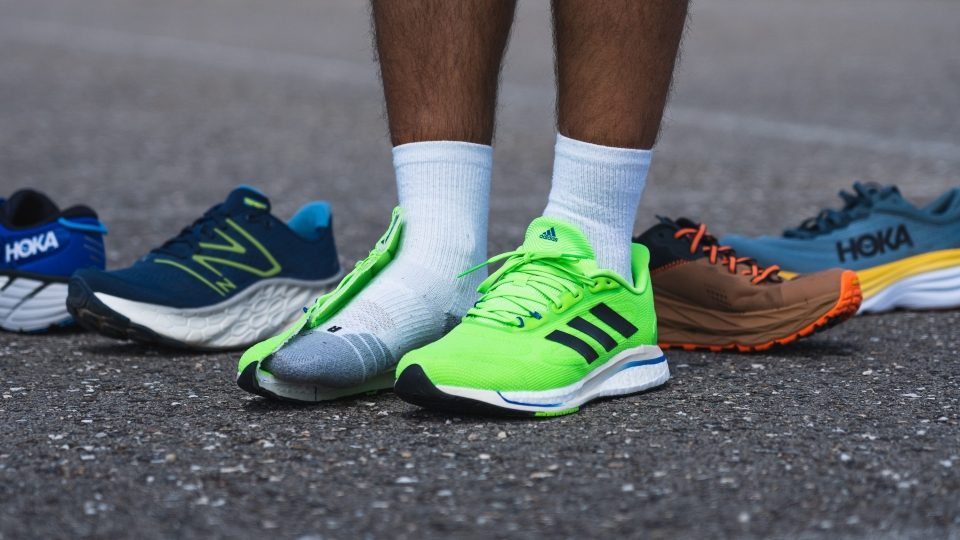
5. Nike Air Zoom Pegasus 38
The Nike Air Zoom Pegasus 38 is a versatile option that provides a balance of comfort and performance, making it suitable for different running styles. Its lightweight design helps maintain speed without sacrificing support.
| Feature | Details |
|---|---|
| Cushioning | React foam and Zoom Air units |
| Weight | 10.4 oz (men’s size 9) |
| Drop | 10 mm |
| Stability | Neutral with good arch support |
Pros and Cons
- Pros: Great for various distance runs, responsive cushioning, stylish aesthetic.
- Cons: Some runners may find it lacks sufficient support for heavier weights.
6. Saucony Triumph 19
The Saucony Triumph 19 combines plush cushioning with a lightweight build, catering to runners who prefer comfort without the clunkiness. Ideal for heavier runners, it provides a soft yet responsive ride.
| Feature | Details |
|---|---|
| Cushioning | PWRRUN+ cushioning |
| Weight | 10.6 oz (men’s size 9) |
| Drop | 8 mm |
| Stability | Neutral with support features |
Pros and Cons
- Pros: Lightweight and cushioned feel, excellent for long runs, durable upper.
- Cons: Can be pricey, some may feel it lacks stability.
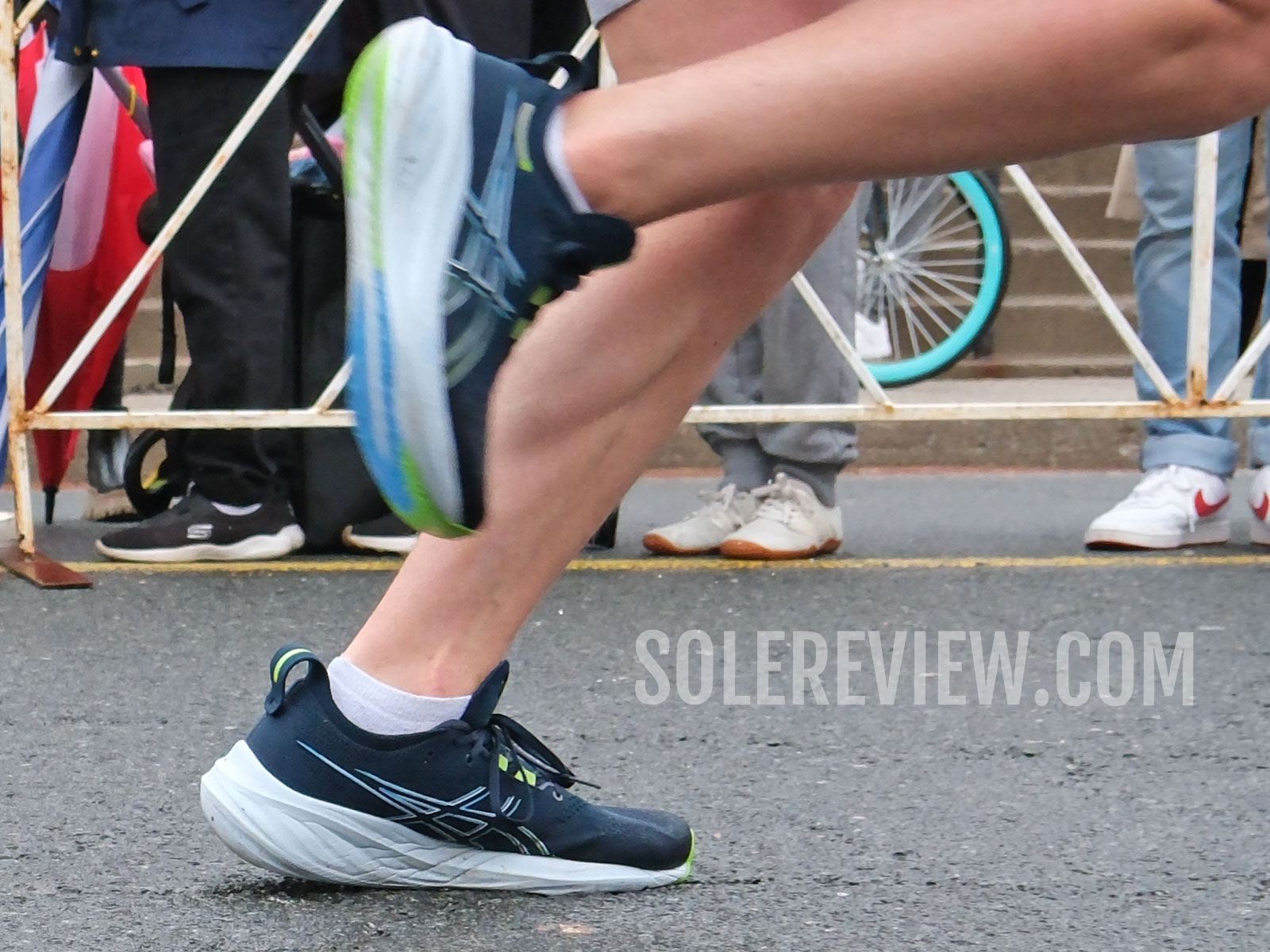
Comparison Table of Best Running Shoes for Men Over 200 lbs
| Shoe | Cushioning | Weight | Drop | Stability |
|---|---|---|---|---|
| ASICS Gel-Kayano 28 | Excellent | 11.1 oz | 10 mm | High |
| Brooks Adrenaline GTS 21 | Exceptional | 12 oz | 12 mm | High |
| New Balance Fresh Foam 1080v11 | Soft | 10.3 oz | 8 mm | Neutral |
| Hoka One One Bondi 7 | Maximum | 11.5 oz | 4 mm | Minimal |
| Nike Air Zoom Pegasus 38 | Responsive | 10.4 oz | 10 mm | Neutral |
| Saucony Triumph 19 | Plush | 10.6 oz | 8 mm | Neutral |
Tips for Choosing the Right Running Shoes
1. Understand Your Foot Type
Knowing whether you have flat, neutral, or high arched feet can help in selecting the best shoes. Many brands offer shoes specifically designed for different arch types.

2. Try Before You Buy
Always try on shoes in the late afternoon when your feet are slightly swollen. This ensures a better fit. Walk or jog in place to assess comfort and fit.
3. Consider Your Running Style
Your running pace, frequency, and style (forefoot, midfoot, heel striking) can influence shoe choice. Test shoes based on how you run, not just how they feel while standing still.
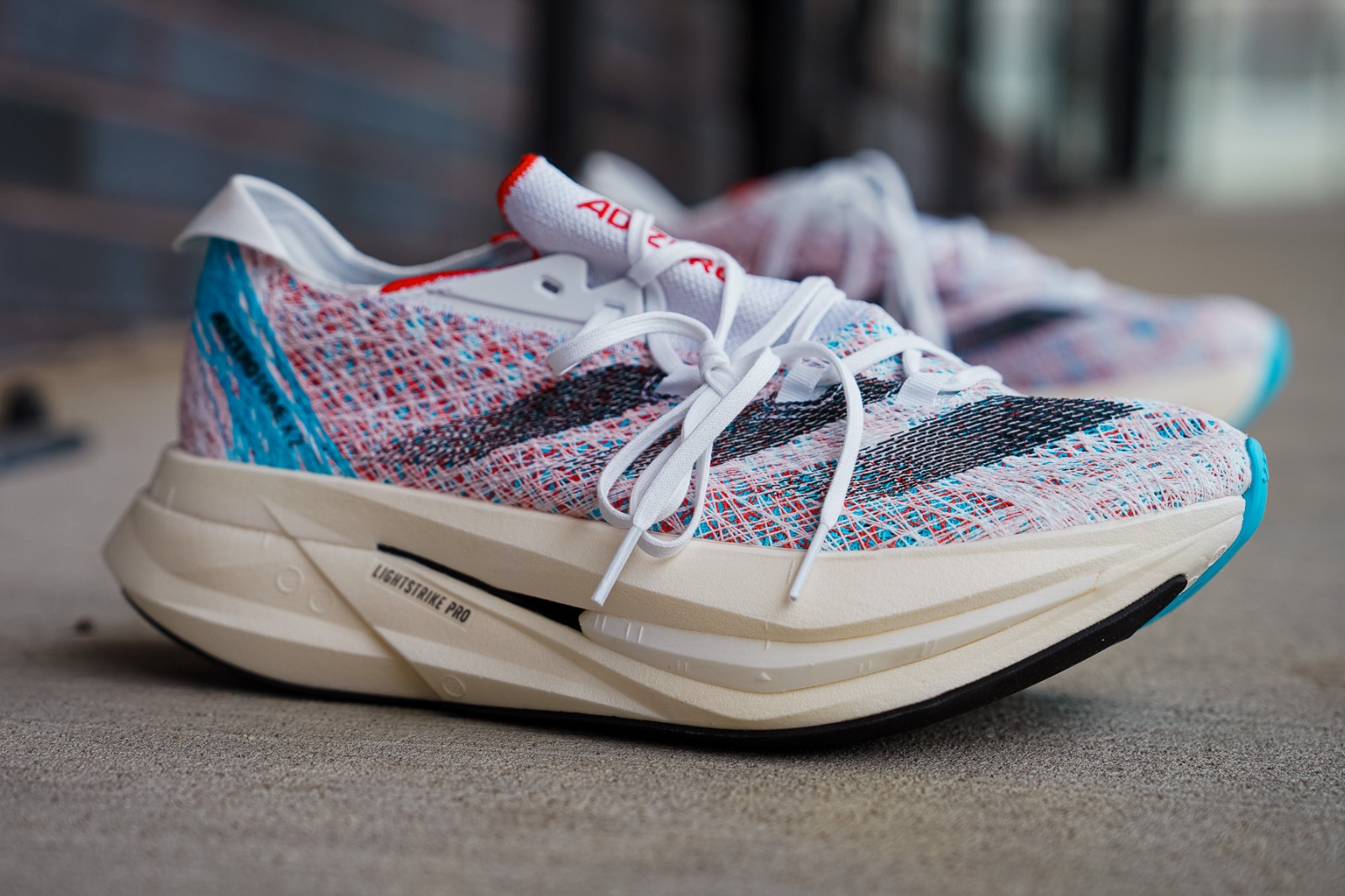
4. Invest in Quality
Quality shoes can be an investment, but they pay off in comfort and injury prevention. Consider the longevity and materials used in construction.
5. Replace Shoes Regularly
Running shoes can lose their cushioning and support after about 300-500 miles. Be sure to track your mileage and replace shoes when necessary.
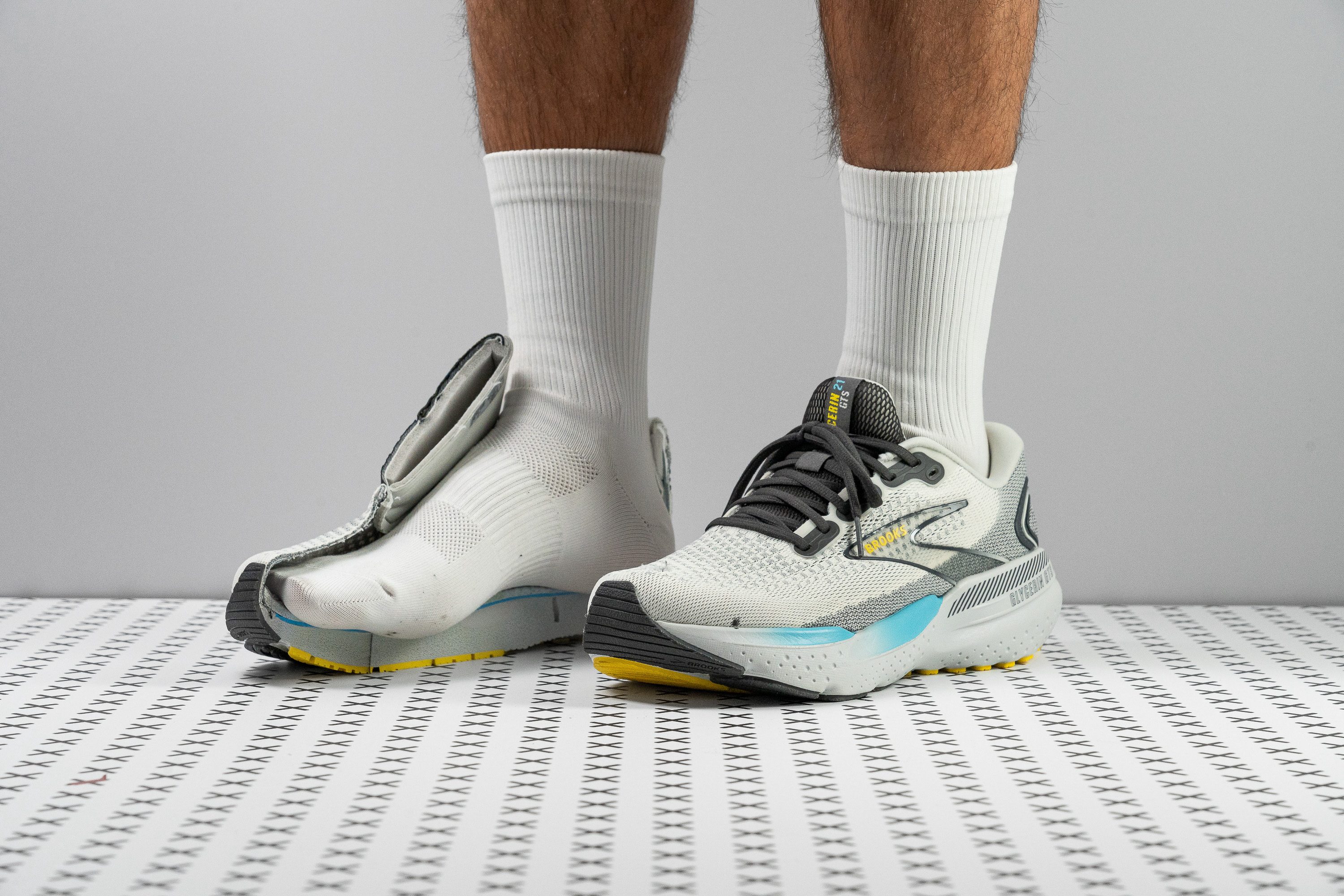
Real-World Experiences and Case Studies
Numerous runners have shared their experiences with different running shoes. For instance, a 35-year-old runner, Jim, weighing 220 lbs, found that switching from Nike to Brooks Adrenaline GTS 21 drastically reduced his knee pain and discomfort during long runs. He praises the shoe’s cushioning and support system, which helped him transition to longer distances without the fear of injury.
Case Study: John’s Journey to Fitness
John, a 45-year-old father of two and an avid runner, weighed 230 lbs when he decided to take up running. Initially, he faced challenges finding shoes that offered the right support. After trying several brands, he settled on the ASICS Gel-Kayano 28, which he felt provided the right blend of stability and comfort. John often reflects on how important this choice was in his fitness journey, as he successfully completed a half-marathon within six months.
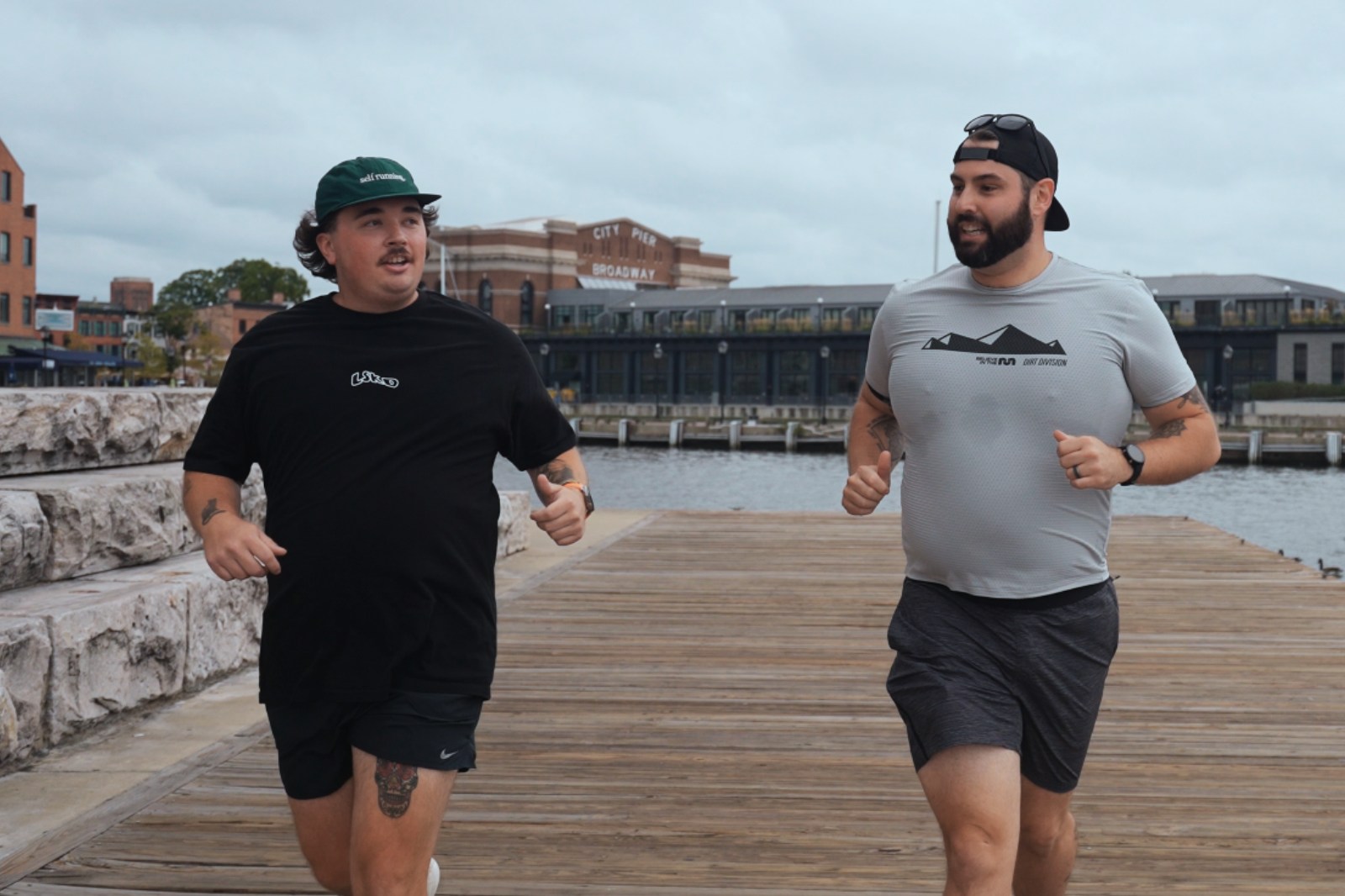
Frequently Asked Questions (FAQs)
1. What are the best running shoes for men over 200 lbs?
Some of the best choices include ASICS Gel-Kayano 28, Brooks Adrenaline GTS 21, and Hoka One One Bondi 7 due to their excellent cushioning and support systems.
2. Do heavier runners need special running shoes?
Yes, heavier runners typically require shoes with more cushioning, support, and durability to prevent injuries and ensure comfort.
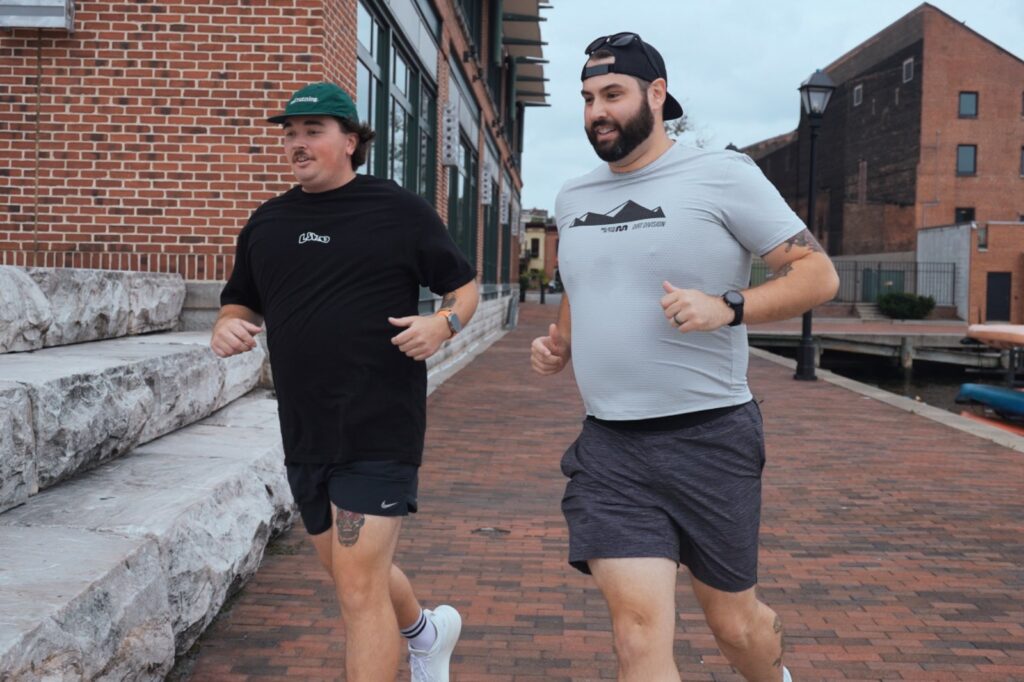
3. How often should running shoes be replaced?
Generally, running shoes should be replaced after 300-500 miles, depending on the shoe material and runner’s weight.
4. Can running shoes help reduce injuries?
Proper running shoes can help distribute weight evenly and provide adequate support, which reduces the risk of common running injuries.

5. How do I know my foot type?
You can determine your foot type by looking at the wear pattern of your old shoes or by performing a wet test to analyze your arch shape.
6. Are there budget-friendly running shoes for heavier runners?
Yes, brands like New Balance and Saucony often have budget-friendly options that still provide the necessary support and cushioning.
7. Should I consult a specialist before buying running shoes?
It can be beneficial to consult a specialist or visit a running store with knowledgeable staff who can analyze your gait and recommend the best shoes.
8. What size running shoes should I buy?
It’s recommended to buy running shoes that are half a size larger than your casual shoes to accommodate foot swelling during runs.
9. Are there running shoes specifically designed for overpronation?
Yes, many brands offer stability shoes designed specifically for overpronators, providing additional support to prevent rollover.
10. Is it better to buy running shoes online or in-store?
Buying in-store allows you to try shoes on and assess their fit immediately. However, reputable online stores often have good return policies if the fit isn’t ideal.
11. Should I wear special socks with my running shoes?
Investing in moisture-wicking running socks can help prevent blisters and provide additional comfort during your runs.